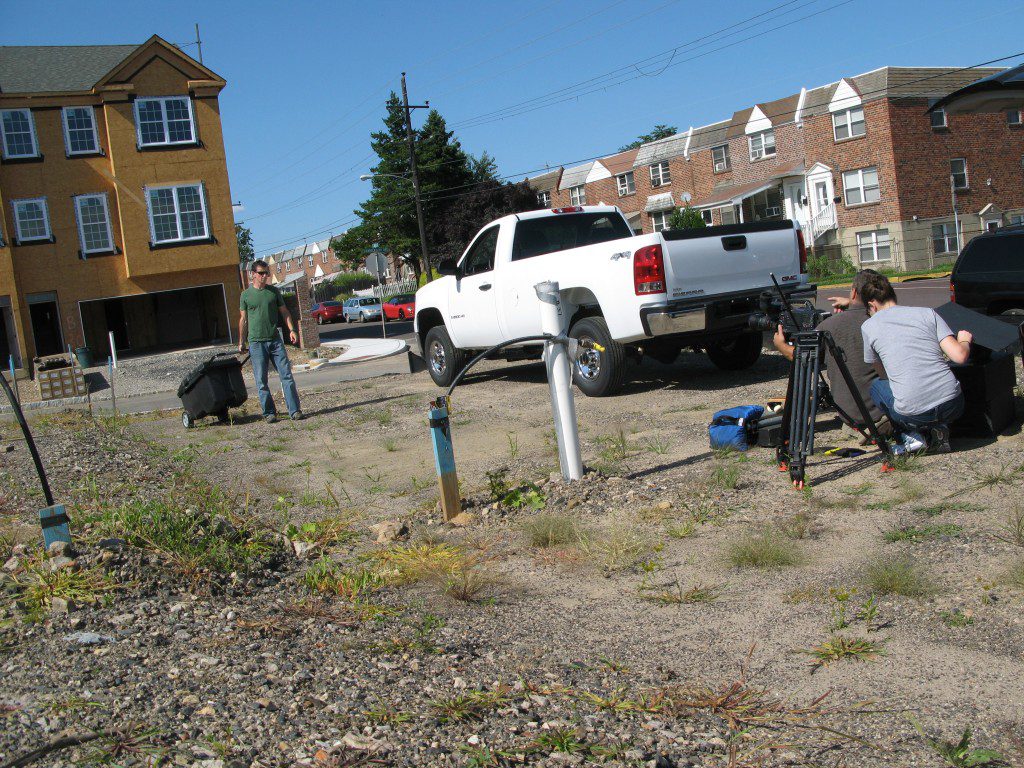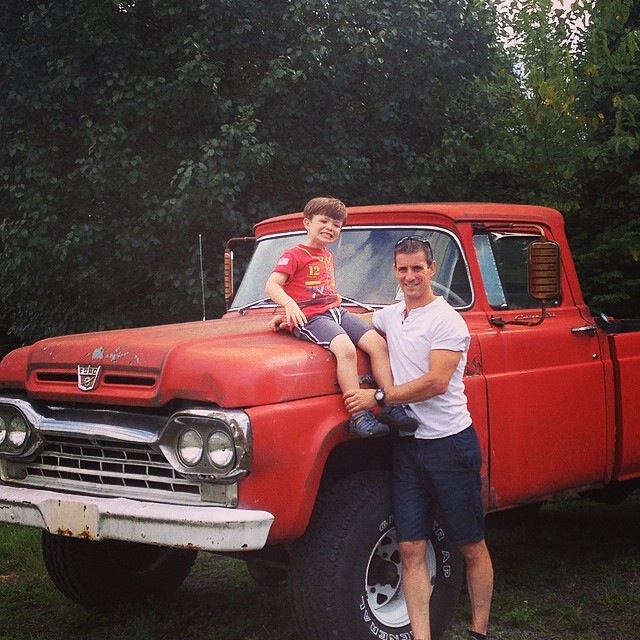If you are looking for tips on how to buy a truck, it’s a safe bet you’ve already got a purpose in mind. Sure, there are scads of truck buyers who are solely looking to evoke an image (probably no different than some car buyers, only the image is different), but for serious truck buyers–unlike most car purchases–there is purpose built into the decision that cars just can’t keep up with.

If you’re in a certain trade (construction, landscaping, essential worker like medical or emergency services) or have certain hobbies (DIY, skiing, boating, camping) the decision to buy a truck almost makes itself and then the questions shift to, which truck should I buy?
If it’s your first time, it could feel relatively confusing, and even complicated. You’ll need to keep quite a few things in mind. Combined with sales tactics at dealerships, it’s easy to feel a little overwhelmed during the process.
Don’t settle for that. By taking the right steps and knowing how to buy a truck, you’ll make it much easier for yourself. You’ll even make sure you get the right truck for your needs–and your budget. While it could take a little time, it’ll be more than worth it in the end.
Factors To Consider Before You Buy A Truck
Before you buy a truck, it’s worth considering a few factors. These could help you narrow down your options, and might be more important to your decision than you might’ve thought. At a minimum, you should make the decision a lot easier by keeping them in mind.
Some of the more notable of these are:
4×4
There is a huge difference between all-wheel-drive and 4-wheel drive. If it snows where you live and you absolutely need to get to work no matter the weather, all-wheel drive will give you “better” traction in adverse weather. 4 wheel drive will get you where you are going barring and keep you on the road en route. For muddy job sites or long, dirt roads that can get rained out, there is no substitute.
Towing Capacity
Towing capacity refers to how much weight a truck can tow behind it without interfering with how it runs. Some trucks boast noticeably more than others, and that can be a major drawing point. If you go camping, it makes bringing everything with you much easier than it’d be in a car.
There are 4 categories here: Light trucks like Nissan Frontier or Toyota Tacoma; ½ ton (150/1500) ¾-ton (250/2500) and 1-ton (350/3500). In simple terms, as the weights go up so do the sizing and capacities of the components along with capacities.
Load Weight
A lot of people put towing capacity and load weight together, but there can be some major differences. Your load weight refers to how much you can put into the truck and have it still be drivable. If you’re in construction or another field, this can be a major factor to focus on.
Handling
Trucks can often have quite a difference in handling, especially when comparing fully-loaded versus unloaded. That doesn’t mean you’ll have to settle for a rough ride, though. Some options offer much better handling than others, and these could be better recommended than other options.
View
Modern, full-size trucks have large hoods that are hard to see around, even with cameras. While theoretically cool looking, parking backing a trailer or getting your bearings on a crowded highway is different than driving a car or light trucks.
With these in mind, buying a truck should be much easier. There are still more than a few other steps you’ll need to take when you’re doing it, though. Five of these could be more important than you’d think, so they’re worth focusing on from the start.
How to Buy a Truck: 5 Steps You Need To Take
1. Don’t Overlook Packages
Trucks can come with quite a few extra features, different trims, and much more. If bought individually, the cost of these can be quite high. When you’re buying a truck, focus on the packages instead of the individual features. With these, you’ll get quite a few add-ons without all of the extra cost.
While these can still cost noticeably more than a basic option, they can be worth considering. Most manufacturers offer different packages that boast multiple features. Take a look at these to figure out if they’re something you’d like, and whether they’ll be worth the extra cost they come with.
2. Be Prepared For The Unexpected
Buying and owning a truck can often come with more than a few surprises, and it’s worth being aware of these before you buy. Some of these could come up in the buying process itself, but others could come well after that. You’ll need to be aware of these before you buy.
Accidents can happen when you’re on the road, especially the larger trucks get, for example. It’s worth having a truck accident lawyer on-hand for if you need them. While this shouldn’t happen too often, be prepared. You shouldn’t have anything to worry about once you do.
If you’re new to towing, practice in an empty parking lot using lot lines or cones. Backing up a trailer, boat or camper–especially using mirrors–isn’t something you can glean from watching videos. You have to have a real life feel for it.
3. Know Your Budget
Trucks are usually more expensive than cars, but they can range in price quite significantly. Make sure you know about that when you’re going to buy a truck. Before you start, set yourself a limit on how much you can spend on it. It’ll help you narrow down your options much more than you’d think.
The main drivers with this are some of the features each option comes with. Larger, more powerful ones cost much more than smaller counterparts. If you get any add-ons, it can be even more expensive. Make sure you keep that in mind when you’re looking around.
Also, if you’re in the light truck market, several brands have added stripped down–but functional–lower cost options that may fit the bill.
4. Figure Out The Engine Size
Trucks usually have much larger engines than cars, but that doesn’t mean they’re all the same size. Some will be noticeably more powerful than others, especially when they boast notable towing capabilities. Give this some thought before you make a decision on which truck you want to get.
You may not notice engine size in daily operation, however, it may be quite noticeable at the gas pump. Bigger engines and transmissions and body sizes require more fuel to operate.
5. Pick A Cab & Bed Size
When you’re about to buy a truck, you’ll have the choice between multiple cab sizes, with most manufacturers offering three or four. The cab is the inside of the truck where you and any passengers will sit. While these are usually relatively large, some are much bigger than others. Bigger ones come with larger doors.
There was a time when trucks were primarily for work and came with standard cabs with room for two or three people seated across a bench seat. Now, they are daily drivers used for hauling everything from Fido to family to tools inside the cabin. Extended cabs offer extra room for groceries or tools, often with side-opening doors. These are sometimes called king cabs. Crew cabs–fully four doors–combine the best parts of a truck with the ability to carry people comfortably asx well.
Then there are the bed sizes, which refers to the back of the truck, where you’ll put anything you’re hauling. These usually range between five and eight feet. Go with whichever one you feel is right for you, but keep in mind whatever you’ll be putting in it.
Bed length can also be enhanced with ladder racks that enable transporting items like extension ladders or sheet goods above the bed.
How to Buy a Truck Summary
Buying a truck is appealing for more than a few reasons. If you work in certain industries, like construction, it could even be a necessity. When you’re getting one for the first time, however, it might feel overwhelming. You don’t need to struggle with it, though.
Take the right steps, and keep a few factors in mind from the above list of tips when you go out to buy a truck. Once you do, you’ll be in a much better position to find a truck you’ll love.
About the Author




